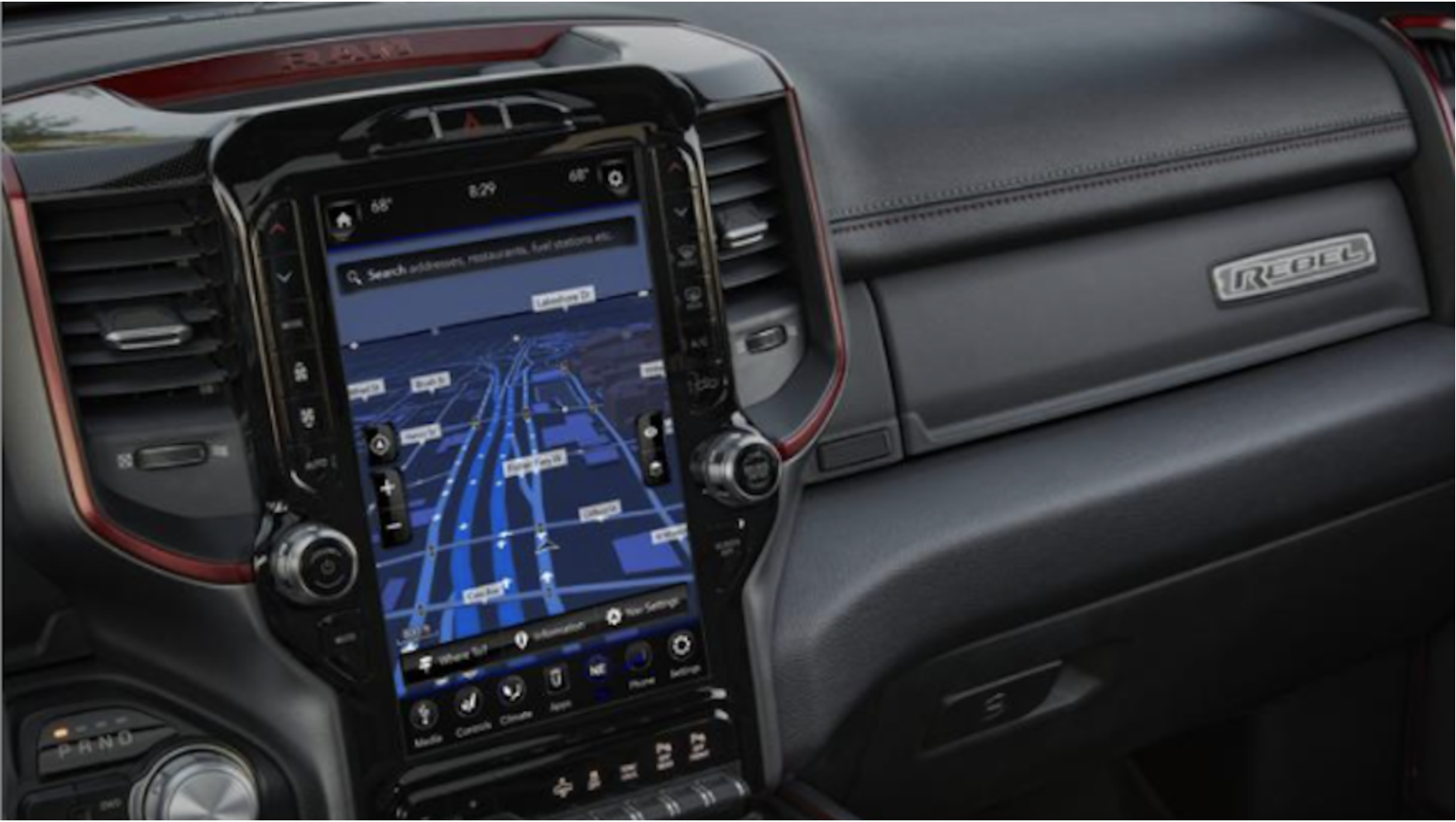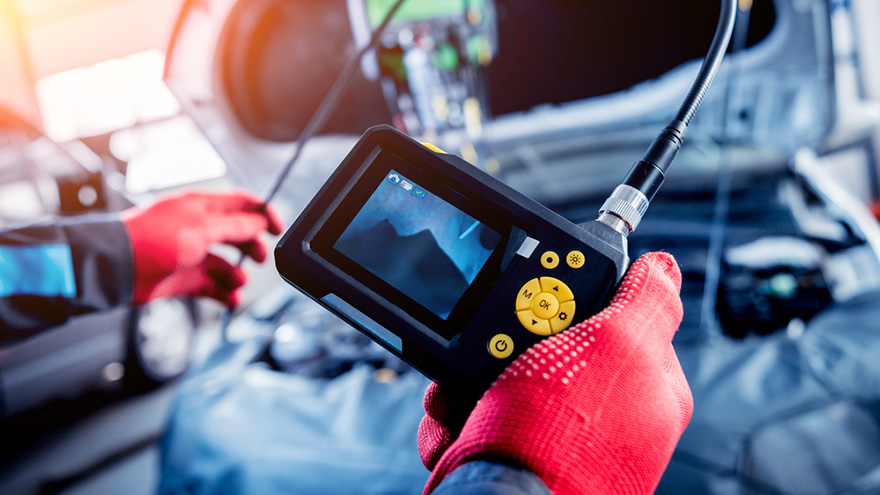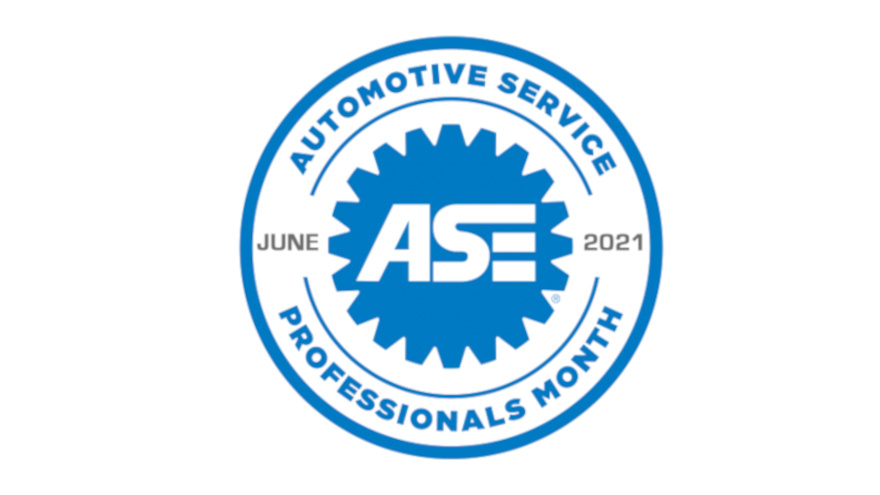Starting in October, Repairify will use its asTech remote scanning and diagnostic services to provide comprehensive diagnostic scan reports along with official OEM tool reports.
"We listen to our customers. We are committed to providing excellent service to continually enhance our products and services," said Cris Hollingsworth, president of Repairify, in the press release announcing the news. "The delivery of the original OEM scan report will provide our customers with an additional layer of confidence and transparency, so they can remain focused on properly repairing today's complex vehicles."
asTech is a leader in the provision of remote diagnostic solutions with a library of more than 1,000 OEM scan tools and growing. Now following an asTech remote OEM scan, customers will have access to a copy of the official OEM tool report, which includes additional information and insights such as diagnostic trouble codes, repair recommendations, recall check information and professional input from the company's team of more than 400 ASE and I-CAR certified master technicians.
"We identified the opportunity to include this resource during our ongoing one-on-one conversations with our customers," said Maurice Tuff, chief technology officer of Repairify, said in the news announcement. "We are pleased our customers continue to trust our dedicated team of professionals and our industry-leading technology throughout their repair. Repairify continuously provides innovative solutions to meet the evolving demands of the industry."
Diagnostic scan reports are delivered directly to asTech customers following pre- and post-scans, and the OEM tool report will also be available as a supplemental resource.
The reports are also available in the recently launched asTech Connect customer experience, which includes a mobile application for both iOS and Android.
Connect allows customers to see the status of all their devices, to chat directly with "master technicians" in multiple languages and to quickly view and search for invoices, reports and more, the company explained.
The Federal Trade Commission released a report on Thursday that involves automakers and service departments at franchised dealerships.
In a new report to Congress, the FTC said its analysis identifies numerous types of repair restrictions, such as using adhesives that make parts difficult to replace, limiting the availability of spare parts and making diagnostic software unavailable.
The regulator then stated the report’s findings, including that “there is scant evidence to support manufacturers’ justifications for repair restrictions,” are primarily based on responses to the commission’s requests for public comments and empirical research issued in connection with its July 2019 workshop, “Nixing the Fix: A Workshop on Repair Restrictions.”
Officials explained the report explores ways of expanding consumers’ repair options and how the FTC could assist in that expansion, consistent with its statutory authority.
In addition, the FTC said that it “stands ready to work with lawmakers, either at the state or federal level, to ensure that consumers have choices when they need to repair products that they purchase and own.”
Officials recapped that Congress directed the FTC to issue the report, noting that it “is aware of the FTC’s ongoing review of how manufacturers — in particular mobile phone and car manufacturers — may limit repairs by consumers and repair shops, and how those limitations may increase costs, limit choice, and impact consumers’ rights under the Magnuson-Moss Warranty Act.”
Officials added Congress specifically directed the FTC to include recommendations on how to best address these problems.
The FTC voted 4-0 to authorize staff to send the 56-page report to Congress that can be downloaded on this website.
When the report surfaced, the Auto Care Association applauded the FTC’s actions.
“We are pleased that the commission listened to the testimony from our association, as well as the other groups, during the 2019 ‘Nix the Fix’ hearing and took into consideration the information that we submitted to the agency over many years,” Auto Care Association president and chief executive officer Bill Hanvey said in a news release.
“The Auto Care Association is proud of its efforts to secure right to repair legislation both on a state and federal level and we hope that this report will be the beginning of increased efforts by the commission to join us in addressing the anti-competitive actions of vehicle manufacturers,” Hanvey continued.
“We fully support the FTC’s efforts in ensuring that consumers continue to have choices on where they have their vehicle repaired,” he went on to say.
National Institute for Automotive Service Excellence president and chief executive officer Tim Zilke said automotive service professionals go above and beyond to provide essential services. They ensure that vital vehicles stay in service to perform their important roles and help keep the motoring public on the road, he said.
Those are some of the reasons ASE has designated June as Automotive Service Professionals Month.
“Because these skilled professionals deserve our thanks, ASE has designated June as Automotive Service Professionals Month to recognize the valuable work they perform each and every day,” Zilke said in a news release.
Zilke went on to say ASE invites all industry members to join the institute in observing the occasion and marking it with special programs, recognition events and other celebrations.
“In addition, June will be an opportune time for motorists to thank their own certified technicians on their social media platforms,” Zilke said.
ASE has also developed a special logo to commemorate Automotive Service Professionals Month.
Companies, organizations and individuals can use the logo to recognize vehicle service professionals during June. The logo can be downloaded free of charge by visiting the ASE Tool Kit.
As many vehicle owners drove fewer miles last year because of COVID-19 and stay-at-home orders, overall customer satisfaction with auto dealer service departments still increased for a sixth consecutive year.
That is according to the J.D. Power 2021 Customer Service Index Study, which showed dealer service visits declining only by 6% from the previous year. Overall satisfaction increased to 847 (on a 1,000-point scale) from 837 a year ago.
The study also measured customer satisfaction with dealer service among mass market and premium vehicle brands. Among mass market brands, ranking highest in satisfaction with dealer service was MINI with a score of 864. Buick ranked second, followed by Mitsubishi, GMC and Kia.
Among premium brands, Porsche ranks highest in satisfaction with dealer service, with a score of 899. Lexus ranks second, followed by Infiniti, Cadillac and Lincoln.
J.D. Power vice president of automotive retail Chris Sutton said completing work right the first time and focusing on customers’ needs play an important role in satisfaction.
“And dealers are nailing these key performance indicators nearly 100% of the time,” Sutton said in a news release.
Sutton also said, “By continuing to provide an exceptional service experience, dealers have an opportunity to seize an even greater share of the market. It’s notable, too, that while service was less frequent in 2020, customers responded very well to convenience services such as vehicle pick-up and drop-off at their home.”
J.D. Power said one key finding of the study is how remote or online payment options boost satisfaction. Only 6% of premium owners and 1% of mass market owners used those methods. But pick-up satisfaction is highest among those who used these options.
Among premium customers who pay remotely or online compared with handling payment via a cashier, satisfaction scores improve 44 points. Satisfaction improves 69 points among mass market customers.
“This is an example of a process some dealers may have put into place as a safety measure during the pandemic, but which they may want to keep in place, as customers find they like it more,” Sutton said.
Another top finding is that using express service increases satisfaction. Satisfaction among customers who did not use express service for maintenance is flat compared with a year ago. But among those who used express service, satisfaction increased 10 points during the pandemic.
An additional finding of the study is that battery-electric vehicle owners are less satisfied with service.
The J.D. Power 2021 Electric Vehicle Experience Ownership Study showed that only 54% of battery electric vehicle owners had taken their vehicle in for service in the past year.
When they do visit a dealer for service, however, their overall service satisfaction is 69 points lower than the average customer and 76 points lower for service quality, according to the 2021 Customer Service Index Study.
Sutton said that for dealers, battery-electric vehicle owners present a unique challenge.
“Not only are their vehicles more difficult to service than traditional internal combustion engine vehicles, but also the lower frequency of visits means dealers have fewer chances to make a positive impression on these customers,” Sutton said.
The 2021 Customer Service Index Study also shows that battery-electric vehicle owners are less satisfied with maintenance than repairs. During dealer service visits, nearly twice as much maintenance work takes place on average than repair work.
The maintenance-to-repair ratio for BEV owners is nearly an even split, however.
More complex service repair work usually results in lower customer satisfaction than maintenance work. But the opposite is true for battery-electric vehicle owners.
J.D. Power said a main reason for that is that battery-electric vehicle owners are 2.5 times more likely to not experience their service completed right the first time.
“BEVs are in their early stages and dealers seem to be experiencing growing pains with servicing these vehicles,” Sutton said. “Automakers may want to invest in more dealer service training. Otherwise, they run the risk of losing return customers.”






